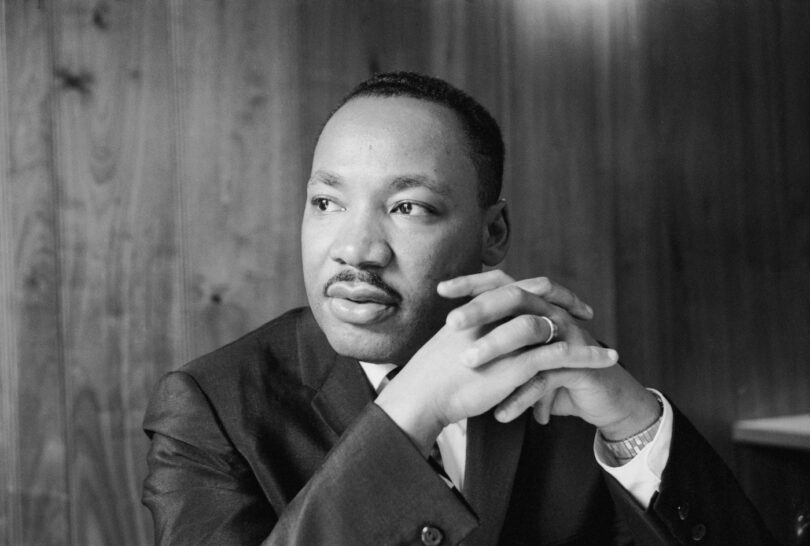Join PRSA as we celebrate Black History Month. Take a look at the specially curated resources highlighted on our Black History Month page here.
In his speech at the National Mall in Washington, D.C. on Aug. 28, 1963, civil rights leader Martin Luther King Jr. declared, “I have a dream that my four little children will one day live in a nation where they will not be judged by the color of their skin, but by the content of their character.” Less than five years later, King was killed by an assassin’s bullet, on April 4, 1968.
When remembering King’s message of unity, “I think about inclusive language; I think of using gender-neutral language,” said Troy Blackwell Jr., a spokesperson in the Biden-Harris administration.

Blackwell, who serves as the Peace Corps’ principal contact for the news media and the public, was the guest speaker for PRSA’s Diverse Dialogues webinar on Jan. 11, ahead of Martin Luther King Jr. Day on Jan. 15.
For PR professionals, remembering King’s legacy might mean “making sure that the information you’re putting out there is culturally appropriate and sensitive to the respective audience” you’re trying to reach, Blackwell said. When pitching the news media and attempting to build relationships with reporters, “do not forget about the Black-owned outlets and the Black journalists,” he said.
Sabrina Browne, vice president of BCW Global in New York, co-lead of the PRSA Black Voices affinity group and a member of PRSA’s New Jersey Chapter, hosted the “Diverse Dialogues” event. She asked Blackwell how communicators can draw inspiration from King’s ability to connect with diverse audiences.
“I think the first thing about Dr. King’s ability to reach so many different people was the fact that Dr. King was a minister,” Blackwell said. Regardless of your religion, “our books and faith are based on stories, parables. And Dr. King perfected the art of storytelling, something that’s crucial to being a minister.”
But telling stories is a two-way street, Blackwell said. “Storytelling is not only you sharing your story; storytelling is also listening and absorbing information. When you’re trying to reach out to different communities, the best approach is to understand them, listen to them, understand what’s important to them [and learn] where their values are. What are the particular issues that they care about?”
A human touch
Today’s communications technology would have been science fiction in King’s time, but the need for messages that resonate remains the same.
“I know we’re all excited about AI and ChatGPT,” Blackwell said, “but I can’t stress enough the [importance of the] human-to-human connection.” Getting to know individual communities is “part of the process of storytelling… to bring people together, to understand them and their values.”
When “pushing things specifically from a DEI lens,” Blackwell feels fortunate that President Biden listed an executive order in 2021 mandating that every federal agency must have an equity action plan. “And then in 2023, the president issued a second executive order, specifically on racial equity in the federal government,” Blackwell said.
Browne asked how PR professionals can incorporate King’s communications approach into messages of corporate purpose today.
Again, “it goes back to storytelling,” Blackwell said. “It goes back to emotion. When I’m thinking about emotive communication, it’s always [about] what matters to people. What is your belief system? What are your values? And what is going to align with your values?”
Of course, different people will have different values and beliefs. But as King orated in his “I Have a Dream” speech, “With this faith, we will be able to transform the jangling discords of our nation into a beautiful symphony of brotherhood.”
[Photo by © flip schulke/corbis via getty images]








This article was so insightful and very important for public relations practitioners to keep in mind. Storytelling and emotions are vital to the PR industry. As stated in the article, AI is very exciting but we cannot lose our human connection by losing emotions in our works. Furthermore, as DEI is at the forefront right now, it is important to take notes from MLK’s speeches and how he evoked emotions. It is also important to remember to be inclusive as PR practitioners.